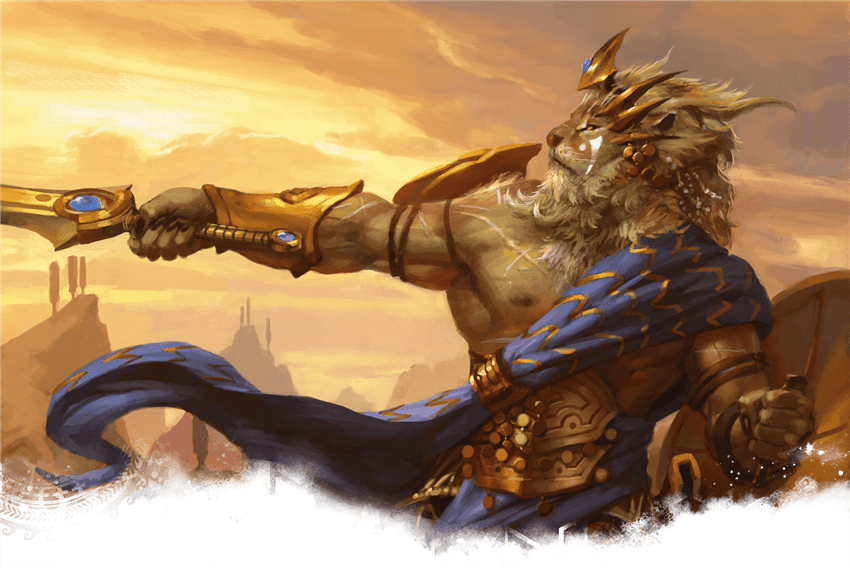Bards are one of the most varied classes in all of 5e. They can be vital in traditional combat, have a library of spells to pick from at will, and can develop their skills to have solid options during any situation they face throughout their campaign.
If you’re going to play a Bard, you need to pick from one of its many subclasses, and I think the College of Eloquence is one of the strongest options available. It makes what makes playing a Bard fun even more powerful, helping you buff up your party and bend NPCs to your will better than any other subclass in 5e. So, let’s get into our College of Eloquence 5e guide.
Key Info Up Front
- Found In: Mythic Odysseys of Theros and Tasha’s Cauldron of Everything
- Feature Levels: 3rd, 6th, 14th
- Role: Caster, Face, Support
College of Eloquence Bard Overview

Bards in the College of Eloquence most closely match what you imagine a traditional Bard to be. They specialize in smooth-talking, and the subclass features focus on emphasizing the core mechanics of the Bard class rather than introducing new mechanics or options to it.
They are adept at winning arguments, know how to inspire their partners, and are masters of logical decision-making. The College of Eloquences is the perfect subclass for any Bard player that wants to play a Bard.
Ability Scores
The College of Eloquence focuses on Abilities as most Bard options do. This means that Charisma is the undisputed king. If you’re going to play a Bard, you need your Charisma to be as high as possible. This will make your spells hit more frequently, do more damage, and allow you to take full advantage of your mastery over language and influence. I don’t think I need to say any more about it.
The next two most important Ability scores are Dexterity and Constitution. Dexterity will be important to boost your Armor Class since you won’t be wearing much armor and helping you hold your own in the off chance that you have to resort to traditional melee combat to settle things. Constitution is also always helpful to help keep you alive, and you’ll want to avoid effects that require a Constitution Saving throw.
The next Ability scores to focus on are Intelligence and Wisdom. Wisdom can be useful for Perception and some other handy skills, while Intelligence can help you with some skills but is useless if you don’t focus on those. Finally, have Strength be your dump stat, as you can rely on Dexterity for your damage by using a weapon with the finesse attribute.
Backgrounds
When selecting your character’s background, you should primarily focus on what fits their backstory the best. However, if you’re more concerned with what will work the best mechanically with the College of Eloquence, there are some standout options. These are the options that I’ve found work the best:
- Courtier (Sword Coast Adventurer’s Guide): This background will give you two more skills that will help you operate as the party’s face and give you two languages to help you interact with more NPCs.
- Faction Agent (Sword Coast Adventurer’s Guide): Being a Faction Agent will help ground you in the campaign’s setting a bit, but it will also help boost your character’s innate strengths as a Bard.
- Acolyte: The Acolyte background is an excellent option for getting your hands on some more languages and comes with some handy skills.
- Charlatan: This background will help you be more stealth-focused if you want to be and is a good alternative to taking the Actor feat.
However, just about any background can work well for the Bard, depending on what you have in mind for your character. The only background that I can’t warn against enough is Entertainer. The background would seem like a perfect match for the Bard, and its flavor is, but its actual mechanics are altogether useless to any Bard.
Skills
For your skills as a College of Eloquence Bard, you’ll want to focus on the ones that help you operate as the party’s face. However, one of the parts of a Bard that makes them so versatile is their ability to pick from any of the game’s skills.
So, alongside the staples like Persuasion, you can choose any skills that will help fill the gaps of your other party members. For all of the skills, I rank them in this order for the College of Eloquence Bard from best to worst:
- Persuasion
- Intimidation
- Deception
- Perception
- Insight
- Arcana
- History
- Investigation
- Religion
- Stealth
- Nature
- Acrobatics
- Athletics
- Sleight of Hand
- Survival
- Animal Handling
- Medicine
- Performance
College of Eloquence Features
Silver Tongue
Level Gained: 3
This feature is incredible, especially when operating as the party’s face. It makes it so that whenever you make a Persuasion or Deception check, any roll you make that is nine or lower instead counts as ten.
Since your Charisma should be pretty high regardless, and you should have proficiency in those skills, even a ten can consistently get you a 15 or higher as a minimum at level three, which is just incredible and can go up to 17 if you use your Expertise to improve it further.
I’ve had a ton of fun using Silver Tongue in my games, and with a minimum score of 15, your Dungeon Master will have to account for your Persuasion checks every session.
Unsettling Words
Level Gained: 3
The Unsettling Words feature is another powerful tool for College of Eloquence Bards that can be used in and out of combat. To use it, you have to spend one of your Bardic Inspiration die and roll it. Whatever you get with your roll is then subtracted from the target’s next saving throw.
This can help you set up an enemy to fail a pivotal check against a spell or effect that your party needs to succeed. Doing so only takes a Bonus Action and gets more effective as you level up.
Unfailing Inspiration
Level Gained: 6
This feature helps you get out of your Bardic Inspiration die as much as possible. It makes it so that when one of your party members uses a Bardic Inspiration dice and the check fails, they get to keep the Inspiration die rather than losing it for good.
This helps you get so much more out of one of your class’ core mechanics and makes it one of the most powerful support tools in the game. I personally am a big fan of playing support characters, and out of all the subclasses in 5e, this is by far the strongest when it comes to helping out in ways other than healing.
Universal Speech
Level Gained: 6
Universal Speech allows you to use magic to ensure that any creature can understand what you’re saying for one hour, regardless of what language you speak.
This feature pairs very well with the Comprehend Languages also spell so that you can understand their responses as well. However, you can only use it once per long rest unless you want to spend a spell slot for each subsequent time.
This feature is the College of Eloquence’s weakest one, and it still is pretty strong.
Infectious Inspiration
Level Gained: 14
Remember how Unfailing Inspiration helped make your Bardic Inspiration dice one of the best support abilities in the game? Well, this makes it even better and is my favorite part of the subclass.
Infectious Inspiration makes it so that when one of your Bardic Inspiration Dice is successfully used by an ally, you can use a reaction to give a Bardic Inspiration die to another creature within range without expending one of the dice in your pool.
You can also do this a number of times equal to your Charisma modifier, which should be pretty high by the time you reach level 14.
College of Eloquence Races
When selecting a race for your College of Eloquence Bard, you want to focus primarily on Charisma. Getting a boost to another Attribute will help determine which skills you may want to focus on, but picking a race with some innate spellcasting will also give you some expanded spell options, which can be very helpful.
Some of the best races for playing a College of Eloquence Bard are below.
Air Genasi

- Book: Mordenkainen Presents: Monsters of the Multiverse
The Attribute boosts for this race aren’t the best, but their innate spells and traits can help in rounding out the Bard’s abilities, so they can focus their spell slots on other options.
Changeling

- Book: Eberron: Rising From the Last War
This is one of the best races for a College of Eloquence Bard. It comes with more languages than is standard. Still, it also comes with a Charisma increase and the ability to effectively use Disguise Self at will, making your Deception checks even easier.
Deep Gnome

- Book: Mordenkainen Presents: Monsters of the Multiverse
This D&D race is a strong option if your party is planning on using a lot of stealth to sneak around and gather information. The Deep Gnome’s innate spellcasting will also help you pick other spells for your slots to add more variety to your options.
Fairy

- Book: The Wild Beyond the Witchlight and Mordenkainen Presents: Monsters of the Multiverse
The Fairy’s innate spellcasting will drastically increase your known spells. At the same time, their focus on buffing other players will help you fulfill a support role even more within your group, which is excellent for the College of Eloquence Bard.
I always lean toward playing a Fairy with the College of Eloquence Bard, as it opens up some fun roleplay as well as its mechanical benefits.
Githzerai

- Book: Modenkainen Presents: Monsters of the Multiverse
This race option will help cover some of your Bard’s weaknesses even if it doesn’t provide much to increase your innate abilities.
The Githzerai comes with an innate Shield spell to help buff your AC, while the boost to your Wisdom Saving Throws will also help keep you from getting charmed.
College of Eloquence Bard Feats
Once you start leveling up your Bard, you’ll likely want to buff yourself and customize your playstyle with some of 5e’s different feats.
The feats that work the best for your build will largely depend on personal preference, but some feats, in particular, can help College of Eloquence Bards be even more capable than they normally are.
Actor
- Book: Player’s Handbook
This feat will give you more options for helping your Charisma effects, allowing you to disguise yourself as other characters to deceive better and persuade NPCs that you come across.
Dungeon Delver
- Book: Player’s Handbook
This feat can be almost required if you’re playing a dungeon-heavy campaign and your Bard is the party’s primary source of skills. If that is the case, this feat will help you be even more effective and consistent in keeping you all safe as you explore the various dungeons along your way.
Fey Touched
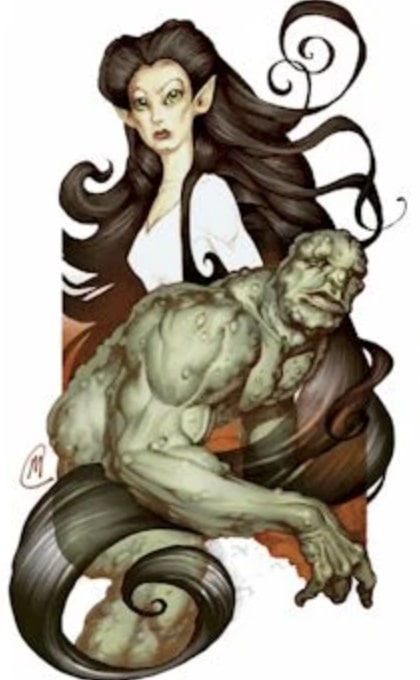
Book: Tasha’s Cauldron of Everything
Misty Step is an extremely useful spell that Bards typically don’t get access to. This makes the Fey Touched feat a valuable tool for moving around the battlefield and escaping danger. It only gives you one use per day, but it is enough to make a big difference in how you approach encounters.
Inspiring Leader
Book: Player’s Handbook
This feat will give you a pool of temporary hit points that you can give to other members of your party. This will help you better fulfill the role of a support healer without having to expend your spell slots.
Metamagic Adept
Book: Tasha’s Cauldron of Everything
This feat will give you some Metamagic abilities from the Sorcerer class, which is a very useful tool for every spellcaster.
College of Eloquence Bard Equipment
If you’re playing a College of Eloquence Bard, you’ll want to spend most of your time in combat outside of melee range. So, you’ll want to be using your Cantrips and other spells most of the time and use a rapier just in case you have to partake in some melee action. Other finesse weapons are a decent option, but the rapier is your best option.
You’ll want to stay in medium armor for your armor to get as much Armor Class out of your Dexterity as possible. You’ll start with Leather, but you’ll want to get your hand on Studded Leather as quickly as possible.
You’ll likely stay in Studded Leather unless you come across any magic armor that can give you more utility—speaking of magic items, some work especially well for a College of Eloquence Bard.
Magic Items
Masquerade Tattoo
- Book: Tasha’s Cauldron of Everything
- Rarity: Common
This tattoo will give you one free daily use of Disguise Self, making it a cheap and effective way to help you infiltrate and manipulate enemy territory.
Eyes of the Eagle
- Book: Dungeon Master’s Guide
- Rarity: Uncommon
This magical item will boost your Perception so much that if you pair it with well-used Expertise, you will never have to worry about missing any enemies, and you won’t even have to use up a spell slot for it.
Instrument of the Bards
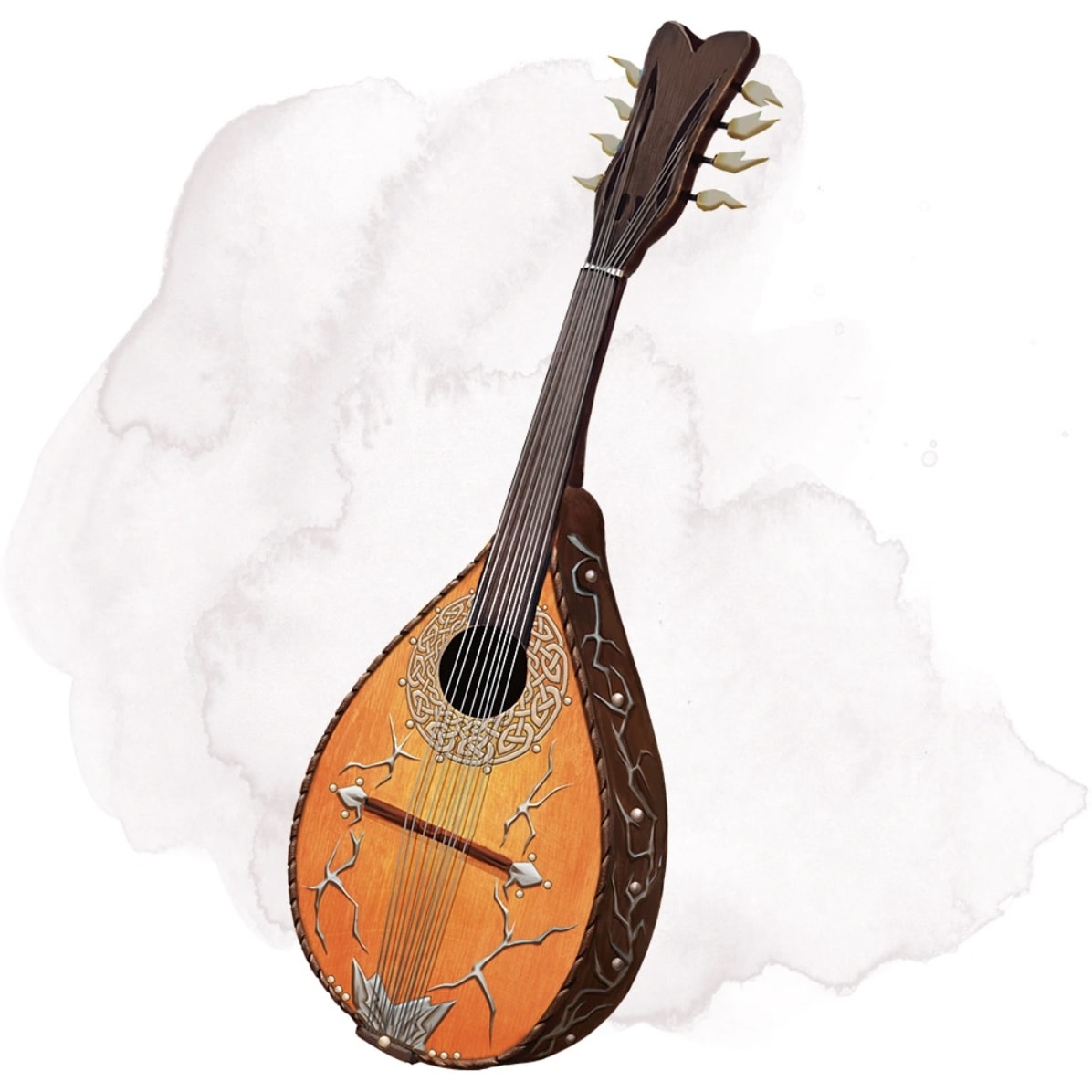
- Book: Dungeon Master’s Guide
- Rarity: Uncommon
This magical item is an instrument that gives you extra spells to use a limited amount of times. These spells are still affected by your Charisma, like a standard spell but without using a slot.
It also gives targets of any spells that charms’ them a disadvantage if you use the spell to cast it, which can be very powerful.
Reveler’s Concertina
- Book: Tasha’s Cauldron of Everything
- Rarity: Rare
I love this magic item for any Bards, and it works very well with one that attended the College of Eloquence. It increases the save DCs of your spells by two and gives you a free cast of a sixth-level spell.
Ring of Spell Storing
- Book: Dungeon Master’s Guide
- Rarity: Rare
This magic item is also very powerful and allows you to fill it with some of your spells. You can then recharge it to use them as much as possible and use it for either defensive spells or face spells to be as consistent as possible.
Tome of Leadership and Influence
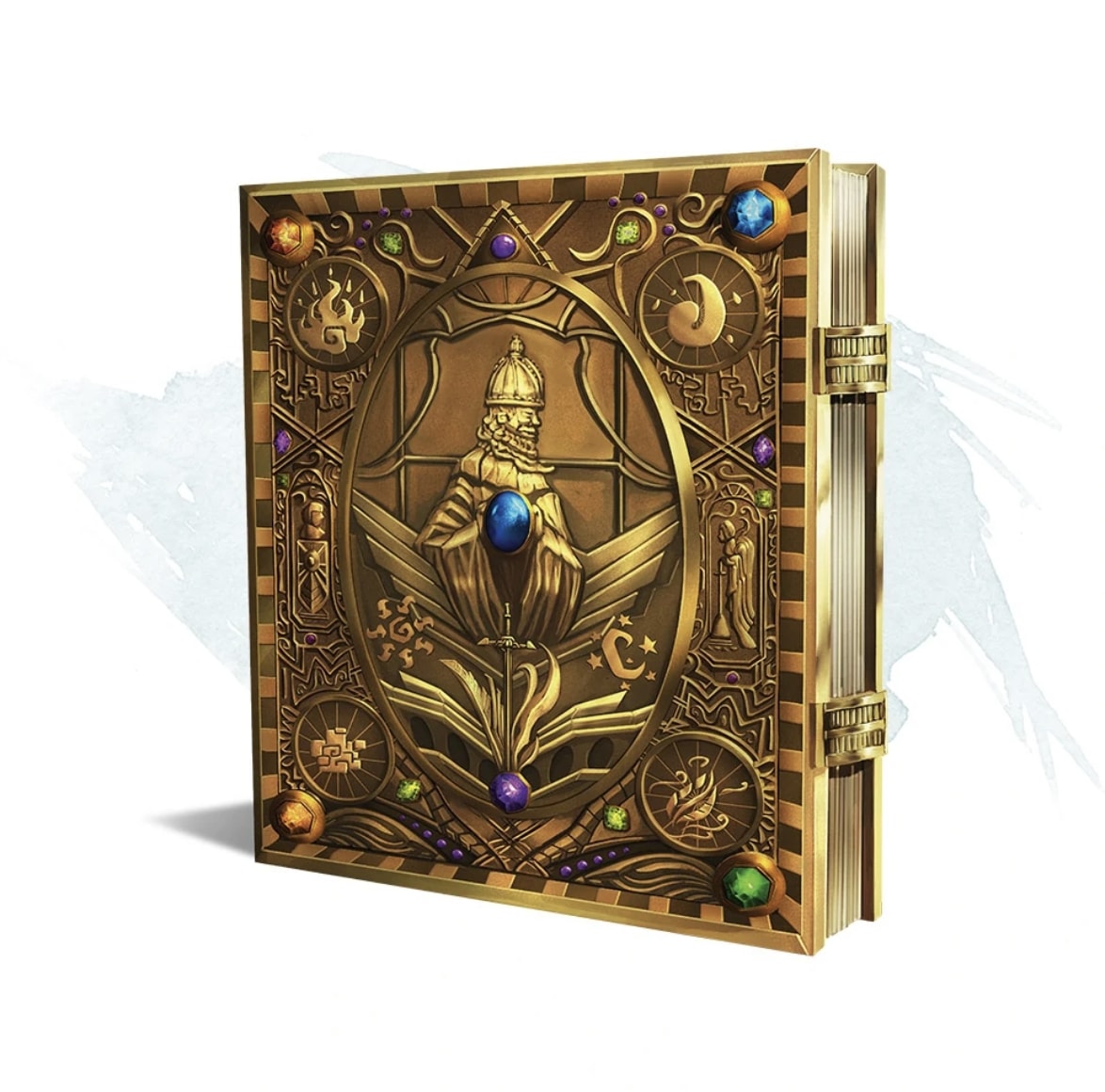
- Book: Dungeon Master’s Guide
- Rarity: Very Rare
This item is an absolute must for Bards to track down, and I always try to give it to my parties if one of them is a Bard. This item increases your Charisma and raises your maximum Charisma limit to 22, making it possible for you to get a +6 modifier. Trust me, you’ll have fun as this subclass with a +5, but getting a +6 only makes everything better.
Ioun Stone (Mastery)
- Book: Dungeon Master’s Guide
- Rarity: Legendary
The Ioun Stones are some of the most powerful items in 5e, and this one will increase your proficiency bonus to increase all of your special skills and actions. This makes this item one of the most impactful for a College of Eloquence Bard to get their hands on.
Multiclassing as a College of Eloquence Bard
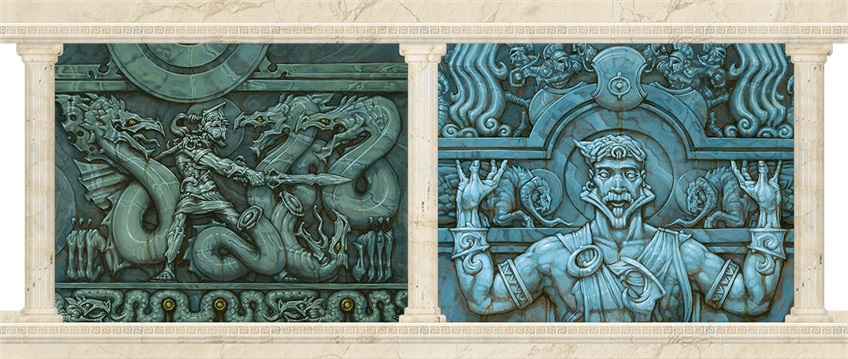
Multiclassing can be an excellent way to add some variety to your character, although it will lock you out of the higher-level features of the class. Bards work well with all classes in 5e, but there are two in particular that can work especially well depending on how you want to theme your build.
The first is a Rogue, which works if you want to pass every skill check in the game. This is an especially strong option if your party doesn’t have a Rogue, and you need to cover the party’s stealth and pickpocketing needs. This multiclass is even better because you can take just one level of Rogue to get its free skill, expertise bonuses to skills, and proficiency with thieves’ tools.
However, if your Bard build focuses primarily on spell-slinging, you’ll want to multiclass with a Warlock. This will increase your combat ability through Hexblade and give you two spell slots that you can recover every time you take a short rest. This will help you better preserve your resources, ensuring that no matter how long your sessions are, you’ll be able to keep helping your party.
How to Play a College of Eloquence Bard
Playing a Bard that studied at the College of Eloquence requires you to appropriately interpret the class and your character outside of combat through roleplay and your actions in combat.
Roleplaying
Since your character is a master of the spoken arts, you should play into that as much as possible when in roleplaying situations. This means that you should talk with NPCs and characters as much as possible and either make friends with them or influence them to his will without them even knowing it is happening. This means that your character will also likely love being the center of attention or will at least know how to use it to their advantage.
You can play this in a few different ways. I’ve preferred doing so by having the Bard know as much as possible about other cultures and histories throughout the world, allowing them to make intimate connections with others that are as genuine as they are powerful. Another option is to have them take advantage of a magnetic personality. People love their jokes, enjoy hearing their songs, and are enraptured by their stories and retellings of classic tales.
A charismatic Bard is a powerful force in 5e. They can sway groups of people with ease and can more intricately motivate and influence individuals when the need arises. This means that you should also use your abilities to act as the party’s face.
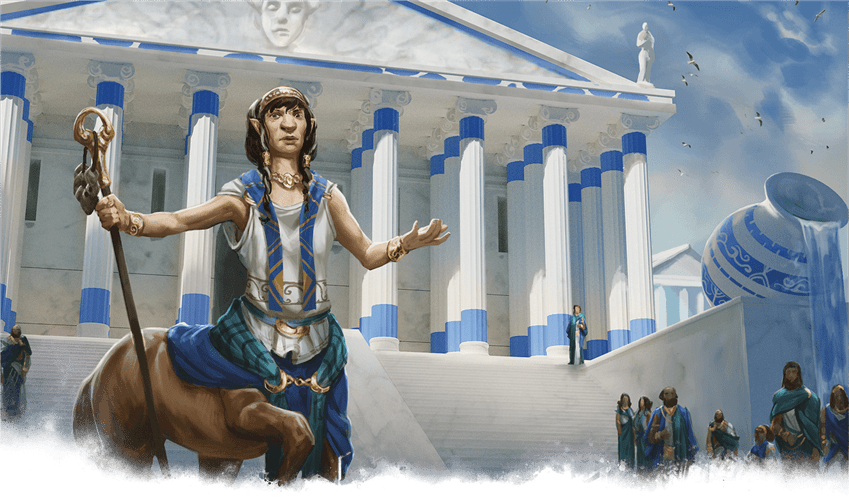
This means that you handle any party’s negotiations and require you to likely interact with most of the more powerful characters throughout the campaign. So, if you want to play a Bard, you’ll likely have to do a lot of talking during your sessions.
I also recommend thinking about how all of this impacts the personality of your Bard. The more traditional way to roleplay it is by having the Bard take advantage of their influence over others by prizing wealth and earthly pleasures. They enjoy flirting and the company of others and tend not to take other matters too seriously. However, it doesn’t have to be that way.
I’ve seen Bards that know the seriousness of the power they wield and are determined to use it sparingly. I’ve also seen Bards that are instead eviler and want to use their abilities to control others because they think they are too weak or scared to make the right decisions.
Combat and Utility
Outside of talking to people, your College of Eloquence Bard has a lot of value to offer the party. Before you get into combat, you’ll want to use your various skills to gather information, disarm traps, and buff your fellow party members to help them pass skill checks. If your party needs it, you can also take over a scouting role, especially with magic items or skill proficiencies.
During combat, you’ll want to focus on staying out of the melee range of enemies. That will allow you to focus on using your Cantrips and spell slots to use crowd control spells and buff your allies. Which spells you want to use largely depends on personal preference and the backstory of your character, but there are a lot of different ways to approach this part of your playstyle.
Outside of casting spells, you should also keep your party members well stocked with Bardic Inspiration die. This will be a bit harder to do at lower levels, so you’ll have to make sure that you and your party members understand the best situations to use them.
Thankfully, getting to level six will help you with this since you won’t be able to lose any Bardic Inspiration die from failed checks. You’ll also want to make sure that you adapt your spells to your situation significantly ahead of time if you know what you and your party are getting into.
FAQs
Question: How good is the College of Eloquence Bard subclass in 5e?
Answer: It is a very strong class that fits well in any party, especially if it is tailored to other roles within the party.
Question: Can a Bard inspire themselves with their Bardic Inspiration dice?
Answer: No, a Bard can only inspire other party members with their Bardic Inspiration dice.
Question: What instruments do Bards play?
Answer: Bards can play any medieval instrument that your Dungeon Master says is present in the setting. However, they don’t have to play an instrument and can instead use stirring words, poetry, or other art forms to use their magic.
Conclusion
The Bard is a classic DnD class, and they can be an extremely fun class to learn and play around with no matter how experienced you are with the game. They can also be one of the most entertaining characters to have in your party, thanks to their fun social interactions and ability to influence the minds of NPCs ultimately.
If you want to play a Bard, there are tons of different options, but I can’t recommend the College of Eloquence Bard enough as I’ve had so much fun running games with one included in the party.
- Steel Defender 5e Guide - September 5, 2022
- Harengon 5e Guide - August 24, 2022
- Shambling Mound 5e Guide: The Most Terrifying Plant - August 21, 2022

